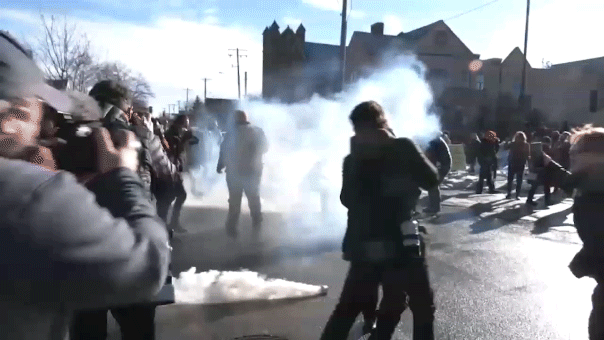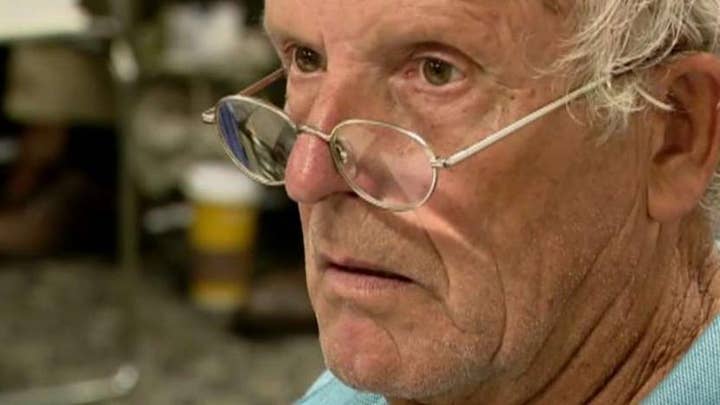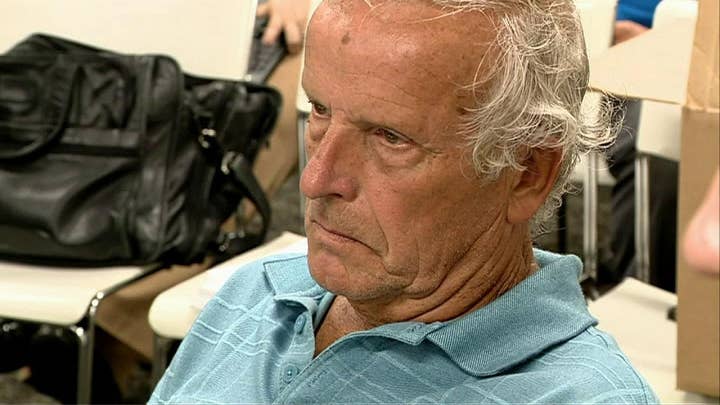Police hold press conference about the death of Illinois abortion doctor
2,000 medically preserved fetal remains were found at the Illinois home of a late doctor who performed abortions in Indiana.
Authorities are urging women who may have had an abortion performed on them by an Indiana doctor who kept more than 2,000 fetal remains at his Illinois home to come forward if they feel that they could have a link to the remains.
Will County Sherrif Mike Kelley said Thursday that the 2,246 fetal remains would be turned over to the Indiana Attorney General's Office for further investigation.
"What we're looking for is to work with Indiana authorities to find out if there's more and work with them if victims come forward that want to participate in the criminal justice system," Will County State's Attorney General James Glasgow said at a press conference.
"Even though the clinics are in Indiana, some of these people could have lived in Illinois at the time, so we have a connection. But obviously if the crime is committed in Indiana, they would be the appropriate prosecuting authority but we probably could assist them so we remain open to that."
Kelley added that the investigation in Illinois has been completed for the time being, but added: "There's still work that needs to be done in this case."
Family members of Dr. Ulrich Klopfer discovered the medically preserved fetal remains in his garage on Sept. 12. Klopfer had died nine days earlier of natural causes, according to Will County Coroner Patrick O'Neil.
When authorities searched the garage, they found more than 70 cardboard boxes of various sizes from "ceiling to floor" containing fetal remains that were placed inside small, sealed plastic bags with formalin, a chemical used to preserve biological material, Kelley said.
There was "individual packaging of every single one of them," Glasgow said of the fetal remains.
The boxes were mixed among other boxes containing Klopfer's personal property and more than 50 detectives and personnel searched the residence for several days, before transferring the remains to the coroner's office.
"I can tell you, in the 31 years that I've been doing this job, I've never seen anything like this ever," Kelley said. "It is a strange ... once in a lifetime type of thing."
Police said they found no evidence of medical procedures occurring on the property but the containers of remains were dated from 2000 to 2002, coinciding with a period of time when Klopfer maintained three abortion clinics in Indiana.
"We collectively ask that the media and the public not pass judgment on the Klopfer family, who made this startling discovery and who have been cooperating fully throughout this entire process," Kelly said, adding that neither the family nor the doctor's widow knew why he had the fetuses hidden in the garage.
Glasgow said there was "no evidence to indicate any criminal activity at that house other than the existence of the evidence that we found."
The laws for disposing of a fetus after an abortion vary from state to state, but O'Neil said the coroner's officer "never exercises jurisdiction" over disposal in Illinois. "Whatever form of disposition either the hospital or clinic provides is up to them."
Glasgow also pointed out that since Klopfer is deceased, he can't face any criminal charges but it is clear that "he failed to follow Indiana law as to the disposal of the fetal remains under their law. He failed to file the proper paperwork under their law. Those are the two things they're going to be looking at. He has facilities there that are still there. That will be part of the continuing investigation."
CLICK HERE FOR THE FOX NEWS APP
Glasgow said investigators "would certainly like to know more" about the circumstances that led to the suspension of Klopfer's medical license in 2015 amid accusations that he failed to report an abortion performed on a 13-year-old girl.
"These records were not handled properly back at that time," Glasglow said.











































